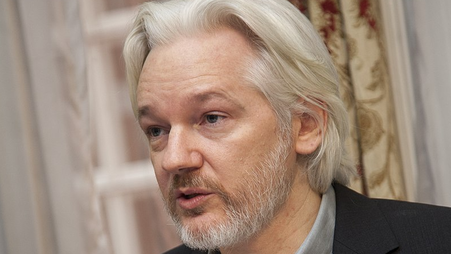Justice Dept. and Julian Assange reach plea deal in case that threatens press freedom


AP Photo/Cliff Owen
The Espionage Act is an unconstitutional law used to prosecute whistleblowers and news publishers.
The Espionage Act is a broad secrecy law that outlaws the sharing of defense information with anyone, for any reason.
In recent years, the law has been wielded to stifle dissent and journalism. Whistleblowers have been imprisoned under the law. It’s also been used against journalists and news outlets that publish government secrets.
We must reform the Espionage Act to distinguish between spying and the exposing of wrongdoing.

Manning was released after a grand jury investigation into WikiLeaks expired last week, but she was immediately subpoenaed to order before a new one — and she could be jailed again for her courage when she resists again.

Any Espionage Act prosecution also threatens journalists at the New York Times and Washington Post.

FBI whistleblower Terry Albury has been sentenced to four years in prison for leaking information of huge public interest value to the press.

The documents whistleblower Terry Albury is assumed to have shared detail the FBI’s recruitment tactics, investigations of minorities, and how the agency monitors journalists. Next week, he'll be sentenced in federal court, and for his act of courage, he could face years in prison.

For alerting the public about hacking attempts on election infrastructure, Reality was given five years in jail.

The first whistleblower prosecuted by the Trump administration, Reality Winner pled guilty to one count of violating the Espionage Act. Her case is the latest in a long history of targeting sources and whistleblowers under the draconian law.

Former intelligence contractor and whistleblower Reality Winner has pled guilty to leaking a secret NSA report to the press.

If alleged whistleblower Terry Albury did what he is accused of, journalists should consider him a hero.

Will the Trump administration use the Espionage Act to prosecute reporters?

The Espionage Act is a draconian statute used to stifle press freedom for decades.